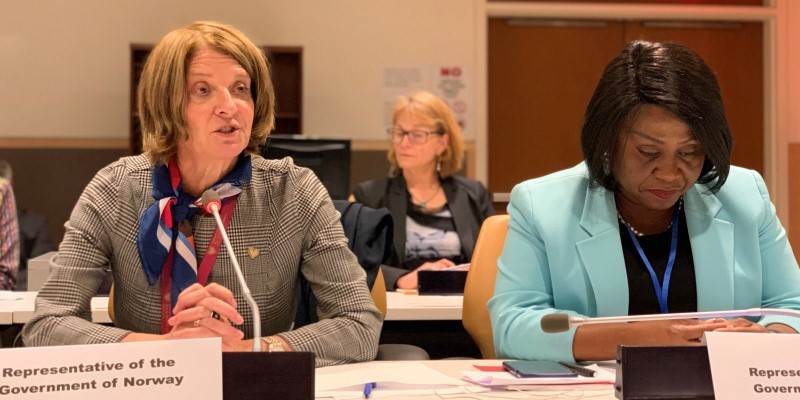Firstly, I would like to thank South Africa for arranging this important event. During their Council Presidency no less! We are proud to join as a co-sponsor.
The title of the event really says it all.
We firmly agree that women in peacekeeping are key to advancing an: inclusive, sustainable, and transformative, peace and security agenda.
Norway is a longstanding and consistent supporter of UN peacekeeping, through: logistical, technical, financial and personnel contributions.
We are fully committed to ensuring that the UN succeeds in this increasingly challenging endeavour.
And are steadfast in the belief that: mandate implementation will be enhanced with more female peacekeepers. Along with a better gender balance in all aspects of peace operations, at all levels.
Turning now to the guiding questions, I will focus on incentives to women’s participation – based on lessons we have learnt in the Norwegian context:
To deploy women internationally, a strong national base of female candidates is necessary.
In Norway we have seen that through maintaining a multiyear priority on improving gender balance it is possible to achieve results. For example:
- The number of women in the Norwegian police service has now risen to 46 %. This also translates to the number of women in Norway’s UN police contingents: where women constitute between 30 and 40%.
- The number of women in the Norwegian armed forces is also increasing.
The real game changer was the introduction of universal conscription in 2015. We did so not because we needed more soldiers, but because we need the best, no matter who they may be.
As a result we see a huge potential for more women in our UN military contingents as well.
Along with cultivating our national talent pools, strong leadership is also fundamental. To combat ingrained prejudice and other obstacles to the full participation of women.
We must also actively promote women for leadership positions, both nationally and in UN operations.
This is important, both to access the valuable resources that women represent, and to provide role models encouraging more women to follow suit.
We are deeply proud that the first woman ever to be appointed as a UN force commander is Norwegian: Major General Kristin Lund.
She is an inspiration to all that women can take the lead.
All this said, Norway still has a way to go.
To increase our knowledge base, we support research to find out more about barriers to women’s participation.
We are pleased to work together with Canada in financing the Geneva Centre on Security Sector Governance. Who are working to establish a deeper understanding of barriers to uniformed women’s participation in UN peace operations, and how they can be overcome.
We are eagerly awaiting the results.
By way of conclusion, I would like stress that women and men have a shared responsibility for ensuring that UN peacekeeping is gender responsive.
And that all of our actions must be based on fact: conflict affects women and men differently.
Peace operations must engage with both women and men, and ensure that their priorities, needs and contributions are equally valued.
Thank you.
